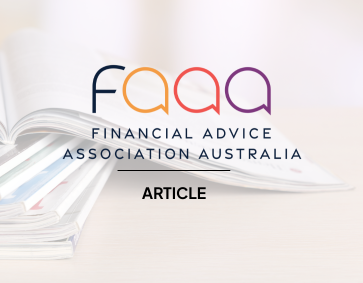While the government’s announcement of a new consultation towards a comprehensive sustainable finance strategy is a welcome development, there are plenty of challenges that lay ahead in terms of its execution, says Zenith Investment Partners Head of Responsible Investment & Sustainability, Dugald Higgins.
Higgins says one of the key barriers to achieving adequate outcomes in sustainability issues has been the lack of global harmonisation.
“We have repeatedly noted previously that while Australia is currently lightly regulated in this area compared to many countries, we will not be able to remain apart from the impacts of regulatory trends offshore. Not only will there be higher disclosure obligations, but there will be fewer places to hide for transgressors and those seeking to greenwash the market.
With Treasury releasing an industry consultation paper on 12 December 2022 on climate-related financial disclosures, Higgins says that issue is now starting to be addressed.
“In the paper, Treasury states that the development of offshore standards potentially creates a ‘guidance gap for Australia’ as market expectations change,” he says.
“The government has tasked Treasury with the development of a comprehensive sustainable finance strategy, which will include new taxonomies for sustainable investment and further initiatives to reduce greenwashing and strengthen ESG product labelling.”
While Higgins welcomed the government’s announcement, he noted that challenges abound.
“With Australia now committing to a firmer path on sustainable finance, this is going to be a much-needed win for investors and capital markets. However, current global standards each have their own challenges, with numerous growing pains relating to issues like disparities in economic classifications under local taxonomies, fund labelling walk backs, and perceived litigation risk associated with tackling some disclosures, like Scope 3 carbon accounting. We hope that the new proposals can strike the right balance between global harmonisation and usability for all parts of the financial value chain,” Higgins says.
“The upcoming launch of the International Sustainability Standards Board (ISSB), which will stand alongside the International Accounting Standards Board (IASB) and result in a comprehensive global baseline of sustainability disclosures for capital markets, will also be a gamechanger for Australia.
“Adoption of the Standards around the world will help in delivering much-needed consistency and comparability in sustainability-related information to markets. While it will be challenging and an imperfect solution for every scenario, just like accounting standards today, it will be a big step in the right direction.”
Higgins says that even though there is more and better data to measure the sustainability of managed funds, that hasn’t necessarily translated to better outcomes. He cites a lack of transparency on ESG metrics in fund holdings data that means comprehensive third-party assessment by consultants, and even advisers, is near impossible on a large scale.
“This is particularly problematic for ethically driven investors who are essentially 'blind dating' without access to full portfolio transparency,” he says.
“There are well over 100 funds in Australia with some form of overt ESG or sustainability orientation. However, they all have different ways of looking at these issues based on their asset class, style and investment methodology. So it pays to understand what’s underneath the bonnet. This is an area that’s highly subjective and definitely not a one size fits all approach.”
Higgins believes the way funds are being researched and rated has evolved with a shift away from merely using ESG risk data, moving towards building sustainability metrics. He adds the other difference is the move from ‘tell us what you are doing’ to ‘show us what you have done’.
“We have passed the point of rhetoric and are moving into the age of accountability. And a big part of that means transparency – transparency in process, holdings, stewardship, actions and outcomes, and key metrics such as carbon,” he says.
“Being able to demonstrate authenticity is important. There are a lot of funds claiming they are fighting climate change, but all they’re doing is fighting climate risk in their portfolios. And that’s fine, but it is important for funds to be genuine about their sustainability aims.
“The acid test separating quality approaches from ‘junk products’ – which probably won’t survive the inevitable increase in regulation and transparency - will be the ability to provide clear, tangible evidence linking through to action and outcomes.”
Commenting on ASIC’s recent information paper and its stance on greenwashing, Higgins says while principles-based regulatory guidelines can help, they have their limitations.
“While principles-based approaches give a great deal of flexibility and future-proofing ability for the inevitable shifts in the landscape, they are also subject to interpretation risk.”
Currently, Higgins says, if the fund view doesn't fit ASIC’s view, the fund runs the risk of regulatory action with ASIC making it clear that ensuring transparency and integrity in sustainable finance is currently a high priority.












